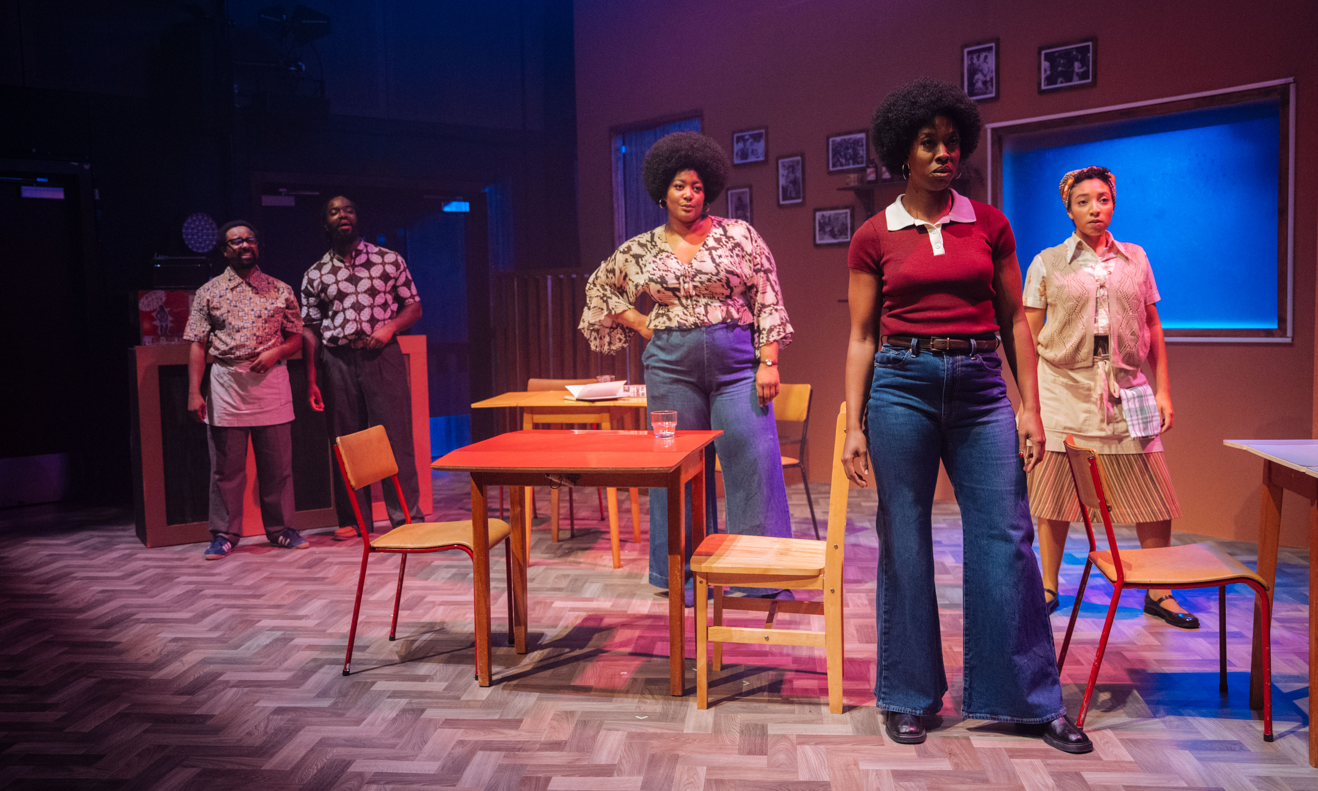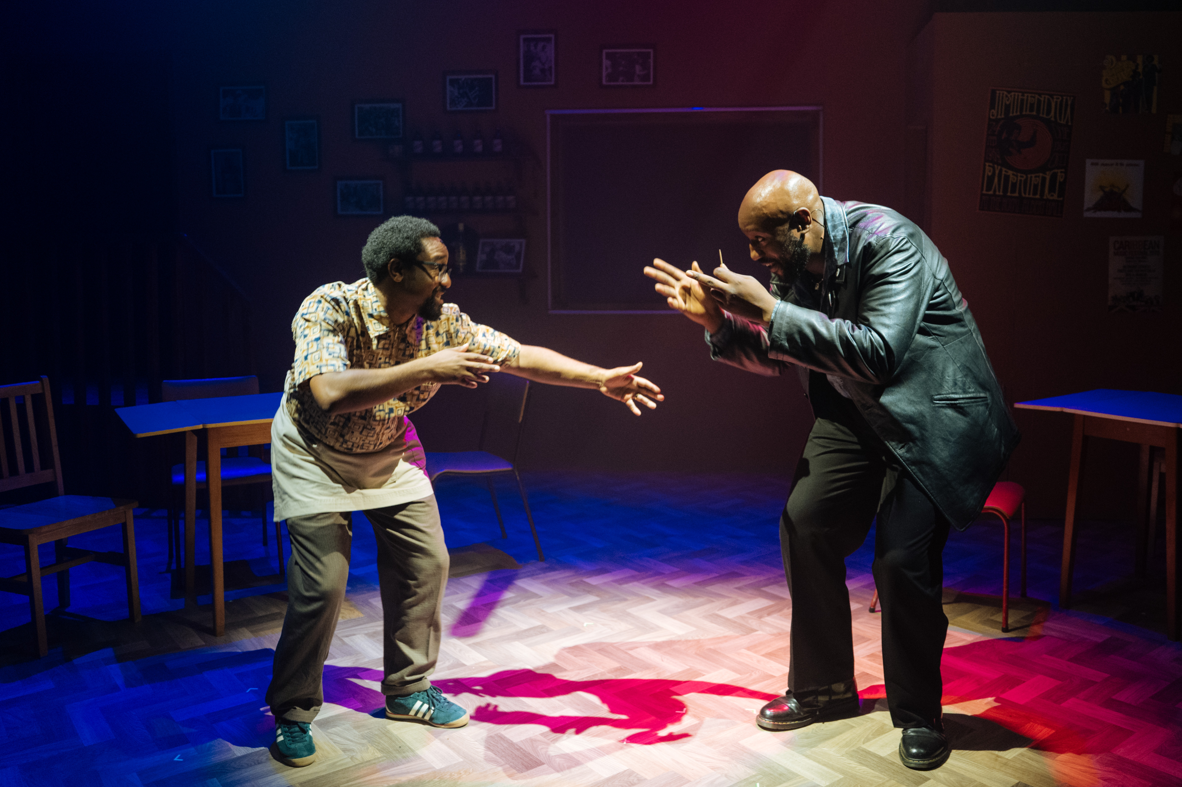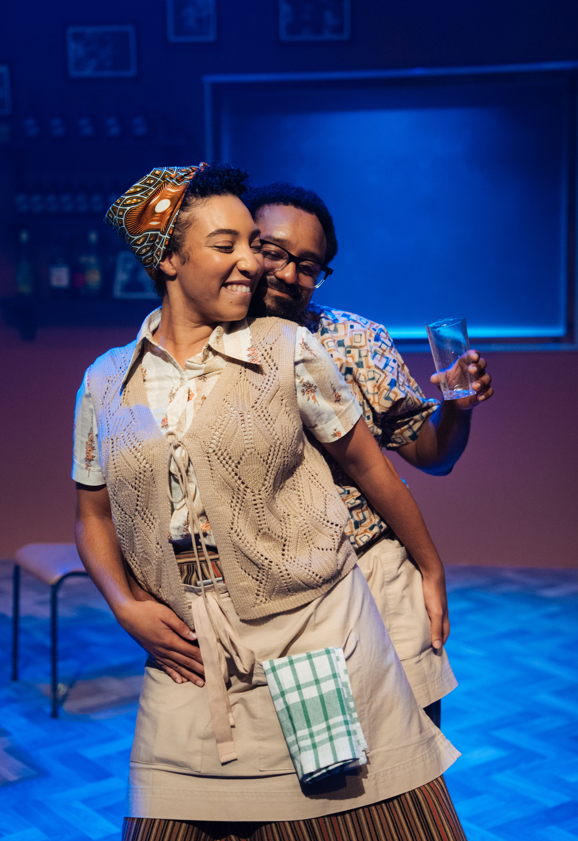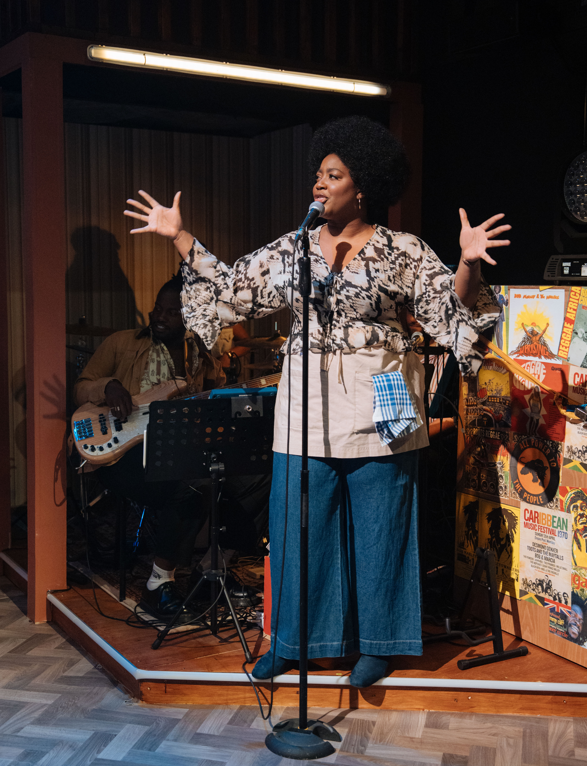Black Power Desk: A Revolutionary Musical That Sings Brixton’s Untold History
Black Power Desk drops you straight into 1970s London. Two sisters, Celia and Dina, carry a story of love, grief, and radical politics while a covert New Scotland Yard unit shadows the community. The music is the engine, not wallpaper. It moves the plot. Sound-system grooves drive the crowd scenes. Protest chants bloom into choruses. Bass and drum tighten when surveillance closes in. Melodies return as the sisters change. Every cue lands with purpose, so a scene can pivot on a chord and a chorus can feel like a decision. The streets feel loud, lived in, and urgent.

At its core, the piece asks: when your fight for justice asks you to choose, can sisterhood or solidarity ever survive? Celia’s fierce activism collides with Dina’s quieter, survival-driven commitment. Grief splits them, yet the blast of life around them the uprising, the music, the midnight meetings keeps pulling them toward each other. The script, penned by Urielle Klein-Mekongo with lyrics and rapperturgy by Gerel Falconer, rides a tension between lyric beauty and raw street vernacular that feels intimate and unafraid.

The storytelling through the music adds humour, drama, sadness, and pleasure. Sound is the beating heart here. Renell Shaw’s score, played live by a tight three piece band, blends reggae, soul, R&B, and ska into a clear language of resistance. A rimshot lands a joke. A minor turn drops the room. A dub break flips fear into fight. Call and response lifts hope. When the bass shakes the floor or a vocal riff burns with sorrow or defiance, you taste history and survival at once. This score does not sit under the action. It drives it, and it shows how art and protest live in the same breath.

The production’s creative constellation amplifies its ambition. Directed by Gbolahan Obisesan, designed by Natalie Pryce (set) and Jessica Cabassa (costumes), lit by Prema Mehta, moved by Jade Hackett, and grounded by dramaturgy from Gail Babb, the show arrives with intense theatrical muscle. This is Brixton House’s largest staging to date, a performance ripe with movement, memory, and architectural gravity and it stands as a flagship of a festival shaped by legacy, rebellion, and the demand not to be forgotten.

Above all, Black Power Desk is poised to be an act of reclamation. Inspired by the Mangrove Nine and the Black British civil rights movement, it illuminates a chapter often missing from mainstream narratives. As Brixton House opens its doors to this story, it reaffirms that resistance is lyrical, that justice can ripple, and that love for your people can be the fiercest protest of all.

